Nine families raised children who all went on to extraordinary success. Here’s what they have in common
Every night for 20 years, Gino Rodriguez knelt beside his three daughters’ beds and whispered an incantation. As rats the size of footballs skittered along the floor of the basement apartment on the South Side of Chicago, he repeated the same five words into each girl’s ear as she slept: “I can and I will.” The message was always the same, and the audience was always asleep.
“You talk to the subconscious. You don’t talk to the conscious,” Rodriguez says. “That’s the one that really listens.”
The girls slept “hot-dog style,” cocooned in tightly wrapped sheets to keep out the vermin. They occasionally woke up during their father’s nightly pep talks, rolled their eyes and then went back to sleep. But each morning, they did a series of jumping jacks, looked in the mirror and said, “Today is going to be a great day. I can and I will.”
Video by Diane Tsai for TIME
Not all days were great—the family moved from the rat-infested apartment only after a woman was murdered in front of their home. But the three daughters of Puerto Rican parents were kept safe, spending most of their time in school or at the boxing gym where their father refereed. They learned how to block a punch and throw a right hook. They bickered over clothes and went to dance class and dressed up for quinceañeras.
And one by one, they proved their father right: they could and they did. Ivelisse Rodriguez Simon graduated from Harvard Business School and is now a partner at a private-equity firm. Rebecca Rodriguez is the medical director of one of the best family-health clinics in the country. And Gina Rodriguez won a Best Actress Golden Globe for her starring role on Jane the Virgin.
“We lived the idea of the American Dream,” Gina says. “And they made an environment where that was possible.”
The Rodriguez Family
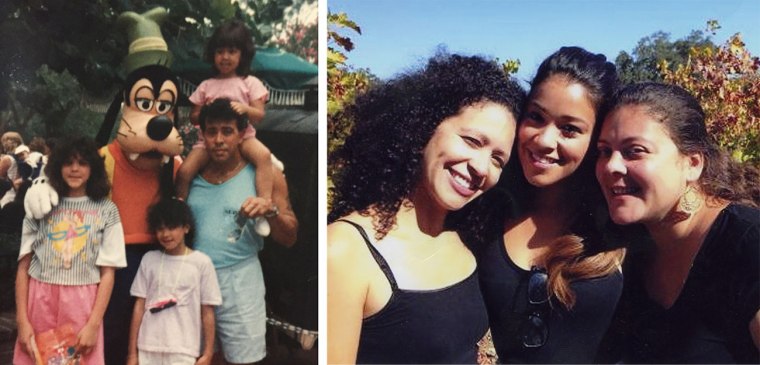
This is a story about nine American families with children, like the Rodriguez kids, who all went on to extraordinary success in different fields. The Emanuel brothers conquered medicine, politics and Hollywood. The Wojcicki sisters became scientists, CEOs and tech entrepreneurs. The Simmons brothers are a painter, a rapper and a media mogul; the Antonoffs are now a rock star and a fashion designer. The Srinivasans include a judge, a public-health official and an entrepreneur, and the Gay siblings write books and run companies and design bridges. The Dungey sisters grew into an actor and a television executive. One Lin sibling designed the Vietnam Veterans Memorial; the other has written 12 books.
Each of these families is different in thousands of ways, from their ethnicities to their incomes to their sleepover policies. But we set out to find the ways they are the same.
In selecting candidates to study, we ignored siblings who do the same work in the same industry (like Venus and Serena Williams) and families that come from a great fortune or legacy (like the Trumps or the Kennedys). We looked for families in which all the siblings did well. And we defined success by leadership, service or achievement, not just fame or money alone. Of course, genetics plays a role for every family, but we focused on upbringing and sibling dynamics instead.
Some of the consistencies are fairly predictable. While none of these siblings grew up rich, they were privileged in many other ways. They had involved parents and lots of opportunities, and most saw college as achievable, even inevitable. They weren’t abused or neglected, and none grew up in abject want. They didn’t have an unfair head start, but they were spared some of the most difficult obstacles faced by less fortunate kids.
But other commonalities are more specific, and more telling. Of the nine families, eight had a parent who was an immigrant or an educator, and five had a parent who was both. Many parents were involved in political activism of some kind. Most recall a conflict-heavy family life, but that conflict was rarely between the parents. Many had a strong awareness of mortality as children. And most said they grew up with much more freedom than their friends did.
We talked to mayors and poets and judges and rappers, Jews from Chicago and Indians from Kansas and Haitians from Nebraska. We talked to siblings together and alone, and we talked to parents where we could. Here are six striking qualities they shared.

Immigrant Drive
As Gino Rodriguez was boxing with his daughters in Chicago, Saroja Srinivasan, a Hindu who is vegetarian, was mastering the art of the hamburger. She and her husband T.P. Srinivasan settled in Lawrence, Kans., with their three small children in the early 1970s, when T.P. joined the math department at the University of Kansas. Everyone they knew was back in India.
“We made a conscious decision that we are different enough, so we should do everything we can to make [the kids] feel part of their community,” Saroja recalls. That meant cooking hot dogs and pizza as well as dosas and pakoras, watching the Kansas Jayhawks in a living room adorned with Indian devotional art and arranging presents under the family shrine to celebrate “Krishmas,” their version of Christmas.
Just like their neighbors, the three Srinivasan children—Sri, Srija and Srinija—played basketball and went shopping and rode dirt bikes. But they didn’t have chores in the same way their friends did. In the Srinivasan household, less was required—but more was expected.
There was no one person responsible for the trash or dishes. “It was more like, ‘Look around. What’s Mom doing? Does she need help?’” recalls Srinija, the youngest. “Put things away. Pay attention.”
Also, nobody got an allowance. Instead, a drawer in the living-room table contained petty cash for anyone to use. “On the one hand, it meant great permissiveness that is way better than an allowance,” says Srinija. “On the other hand, responsibility for every choice.” Her older sister Srija put it this way: “If I took $20, that meant Sri and Srinija couldn’t go to the movies.”
The Srinivasan Family
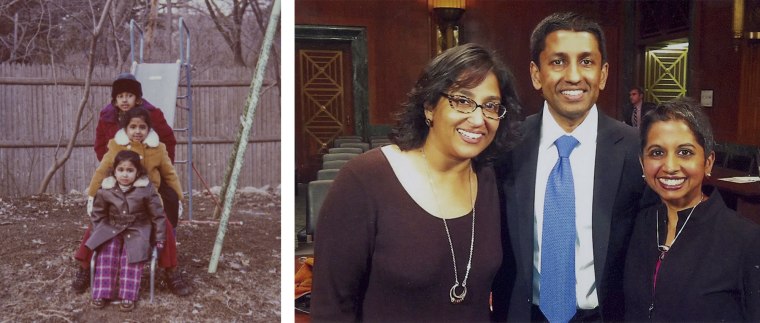
The three kids, now adults, say they grew up understanding that the family was more important than the individual, a realization made especially poignant by the fact that their parents had left their own families behind to immigrate to the U.S.
For the Srinivasans, that sacrifice paid off. Sri would grow up to sit on the U.S. Court of Appeals for the D.C. Circuit; his name was floated earlier this year as a candidate for the Supreme Court. Srija is the interim deputy chief for the San Mateo County health system, responsible for public-health efforts affecting more than 700,000 Californians. And Srinija is an entrepreneur who was one of the first employees at Yahoo and now sits on the board of Stanford University.
In addition to Puerto Rico and India, the parents of these extraordinary siblings arrived from Israel, Haiti, Poland and China. For their children, the standards were unstated yet fundamental, as invisible and necessary as oxygen.
The Gay siblings, a Haitian-American trio, grew up in Nebraska. Roxane Gay is a best-selling author and New York Times opinion writer, Joel Gay is one of the youngest black CEOs ever to helm a publicly traded company (Energy Recovery), and Michael Gay Jr. is a civil engineer. Their upbringing was stricter than their friends’: the kids weren’t allowed to have sleepovers, they couldn’t go to a friend’s home unless their mother Nicole had met the parents, and one bad grade could lead to the confiscation of beloved toys. None of that was up for discussion. “Parenting is not a democracy,” Nicole says.
The Gay Family
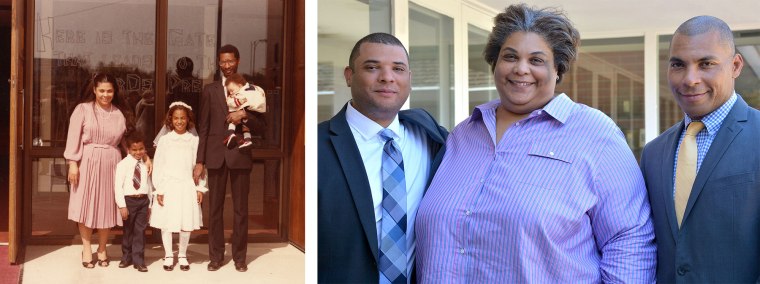
Awareness of the immigrant experience, compounded by the fact that the Gays were often the only black family on their block, led to tough rules and high standards. “Success and performance was not a choice. That was an expectation,” Michael Gay Sr. says. “Good grades in school, that was not something to make a big fit about.” No one received a gold star from “General Gay and his attaché, Nicole,” as Joel calls them.
Being from Haiti in particular meant that there was a distinct honor to uphold. “They were very proud of our history, that we were the first black nation in the western hemisphere,” says Roxane. Adds Joel: “The more impoverished the country from whence you come, the more emboldened one’s work ethic is.” He says his parents, and the awareness of their sacrifice, created “an extreme intolerance for underperformance within oneself.”

Parent-Teachers
On another university campus, far from the Srinivasans in Kansas, Esther Wojcicki was having a pool party. Her husband Stan was chair of the physics department at Stanford, and they regularly hosted barbecues for students and their families. Their daughters Susan, Janet and Anne would interrogate the guests about theoretical physics when they weren’t busy passing hors d’oeuvres or throwing each other in the pool.
Susan is now the CEO of YouTube, Janet is a professor of pediatrics and epidemiology at the University of California, San Francisco, and Anne is a co-founder and the CEO of genetics company 23andMe. When they show up for breakfast in their childhood home on Stanford’s campus, each wears a shirt that belongs to one of the others. (“I just buy three of everything,” says Anne, universally acknowledged as the best shopper of the bunch.) They immediately start mocking Anne for bringing her own kale to breakfast, mimicking Janet’s high school cheerleading routine (Anne knows it by heart) and passing around a video of Anne dancing in a hula skirt on a family vacation. “When you have three girls together, it was already a party,” Janet says.
Growing up surrounded by their dad’s physics buddies had its drawbacks. On their school vacations, the girls were usually dragged to physics conferences, where they would torment the world-famous scientists. They threw paper airplanes during presentations, hurled small objects off hotel balconies and even came up with an elaborate fashion-consulting prank to trick academics into changing their ugly ties.
But the academic environment also instilled a comfort with complex ideas and a confidence in asking questions. “Because we grew up with a lot of strong academics, I think one of the skills we have is not being intimidated,” says Susan. “It’s never like, ‘Oh, this person is so important, I can’t challenge him.’”
The Wojcicki Family
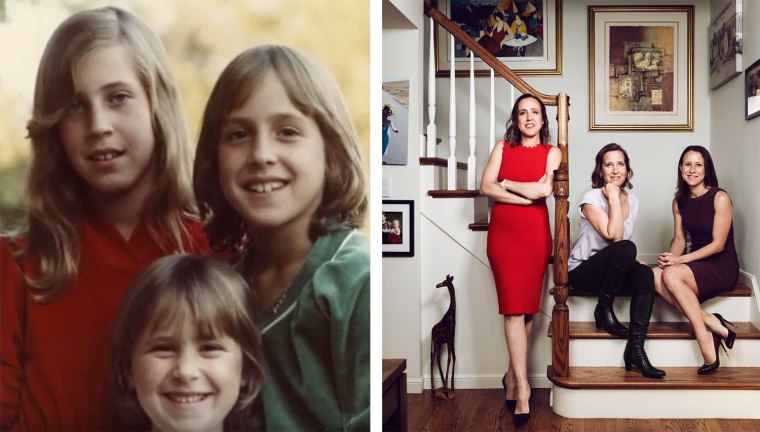
Esther had begun her daughters’ education long before they were peppering Stanford physicists with questions about nuclear particles. After working as a teacher and playground supervisor in the 1960s, she began to suspect that early-childhood education was more crucial than anyone then thought. “My theory was that the most important years were 0 to 5,” she says. “It was a gut feeling. So I made everything into a game.” She did arts and crafts projects with her toddler daughters, took them to the library every week and taught them how to read, count and swim before they even set foot in a classroom.
Of course, developmental experts have now proved Esther right: the first few years of a child’s life are among the most important for learning and brain development. And between Stan’s academic universe and Esther’s educational parenting, another commonality emerges: seven of the nine families had a parent who was a teacher.
Not all taught at the university level, though three families had at least one professor as a parent. The nine families also included parents who were elementary-school teachers, a preschool painting instructor, a doctor who taught medical students, a former French teacher and a school administrator who taught a night course on black history.
It may be that the job itself was less important than the educational mind-set. Parents in these families instinctively understood the importance of at-home instruction decades before researchers established the merits of early education. Their children recalled early supplementary lessons, books read aloud, regular library trips and even at-home worksheets to give them an early boost in school.
This clearly helped the Dungey sisters. ABC Entertainment Group president Channing Dungey is the first black president of a major television network, and her sister Merrin Dungey is a well-known actor, with major roles on Once Upon a Time and Alias. (She will appear on Conviction this fall.) Their mother had been an elementary-school teacher before Channing was born, and she applied her classroom skills to raising her two daughters in Sacramento. “She would draw lines of faces, like three happy faces and one sad face, three triangles and one square, and then there’s my little crayon marks marking the one that was wrong,” recalls Channing, who learned to read when she was 2 years old. “We never went to preschool, because we didn’t have to,” Merrin adds.
The Dungey Family
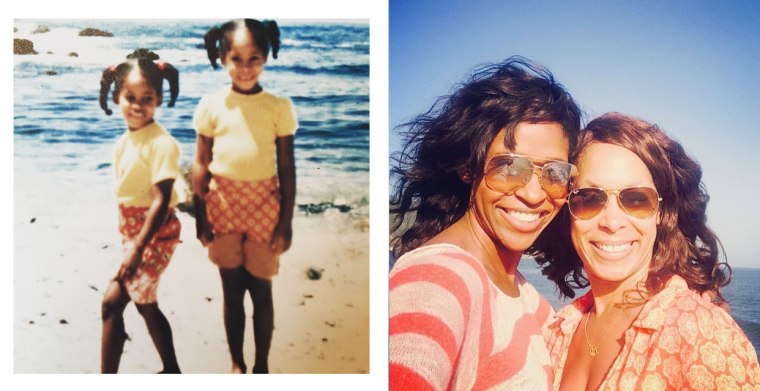
For the Srinivasans, having a parent who was an educator created an unspoken expectation of academic achievement that was almost as powerful as familial love. “You probably have somewhere in the back of your mind that you don’t want to disappoint your teachers in the same way you don’t want to disappoint your parents,” says Sri. “There was just no other way to think.”

Political Activism
On most nights, the three Emanuel boys would adjourn their ritual fistfight and flop on their mother’s bed to hear a story. But sometimes she didn’t come home: Marsha Emanuel was occasionally arrested as she demonstrated against segregation in 1960s Chicago. On those nights, the boys bickered over the top bunk while Marsha waited behind bars.
The Emanuels would go on to become the stuff of legend and are often called the Jewish Kennedys: bioethicist Zeke is a vice provost at the University of Pennsylvania, a former Obama Administration official and one of the main architects of the Affordable Care Act; Rahm is the mayor of Chicago and a former chief of staff to President Obama; and Ari created William Morris Endeavor, one of the biggest talent agencies in Hollywood.
Between their mother’s civil rights work, their pediatrician father’s campaign against lead paint and their grandfather’s union loyalties, the three rowdy youngsters couldn’t escape political awareness even if they tried. “If we did not go with her to a particular protest, that protest was brought home,” Rahm recalls, sitting in the briefing room of the Chicago mayor’s office. “Just eating dinner was a test of current events.” (The brothers also have a much younger, adopted sister, Shoshana.)
Video by Diane Tsai for TIME
That political engagement created a sense that the world was malleable and that the boys, through their actions, could be the ones to shape it. “You could, by protesting or coming up with ideas, actually change the world. I think that’s a very important message,” says Zeke. “It’s not that it will change necessarily, but the world can change, and that you have a responsibility to try to make a change.”
Political activism was a common theme for the parents in these families. Many of them were outspoken in their demands for reform in cities, schools and housing complexes, and never just for the benefit of their own children. While none of the parents held high political office, their involvement ranged from demonstrating for civil rights to union organizing to demanding that cities build new parks or that universities treat low-wage workers fairly. When they weren’t pushing for reform, they were mediating heated political debates at home.
The Emanuel Family
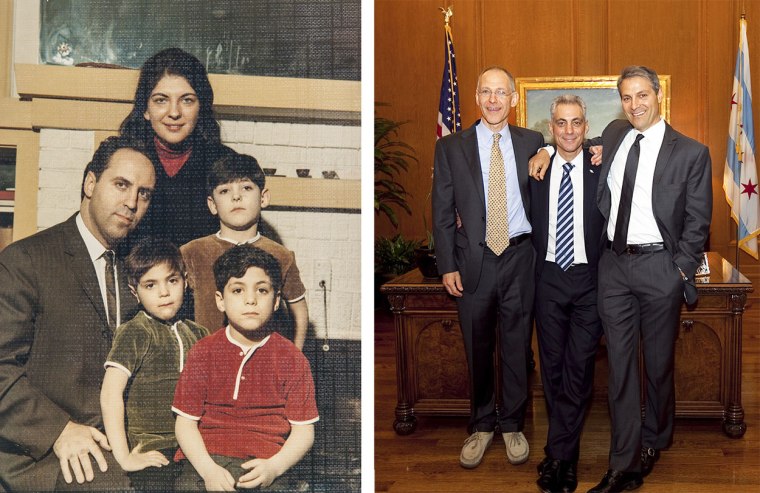
Daniel Simmons Sr. also found himself arrested during civil rights demonstrations. He worked as a New York City school-attendance superintendent by day and taught a college course on black history by night. His young sons remember waving goodbye as he boarded a bus from Queens to see Martin Luther King Jr. at the March on Washington in 1963. They stood with him on picket lines and visited his class on radical politics, and they were watching when he lay down in front of a bulldozer to protest a segregated construction site. Now adults, they say their father’s activism showed them how to get involved in the world outside themselves.
“He had his own moral compass. He knew what was right and what was fair, and he demanded that kind of justice,” says Russell Simmons of his father. “It stuck with me. It stuck by all my brothers as well. It’s part of our makeup.”

ControlLed Chaos
Another thing the Simmons brothers had in common with the Emanuels: they knew how to throw a punch. Growing up in heroin-ridden Hollis, Queens, in the 1970s, Danny and Russell once survived a street fight against 12 other guys. Occasionally, they’d bring the fighting home. “One time Danny took a comb and ran it through my hair, and it hurt real bad,” says the youngest brother, Joseph, known as Rev Run. “I think he was high.”
Their father didn’t try to shield his sons from all violence. “He respected what you learned in the culture in the street,” says Russell. “So he never really hid us from the stuff that was right on our corner.” That exposure also created motivation. “Seeing tragedy always pushes you to move past it,” says Danny, the oldest, who beat heroin addiction decades ago.
Video by Diane Tsai for TIME
Not all kids from tough neighborhoods make it out. But Russell is now a multimillionaire entrepreneur, a co-founder of Def Jam Recordings and the chairman and CEO of Rush Communications. Danny is a painter and author who co-created Def Poetry Jam on HBO with Russell and oversees the Rush Philanthropic Arts Foundation. And Rev Run was one-third of the hip-hop trio Run-D.M.C. in the 1980s and ’90s and is now an ordained minister and reality-TV star.
The Simmons brothers grew up closer to raw, systemic violence than most families in this story. But even outside Hollis, some of the families (especially those with boys) recalled a household dynamic that resembled a fight club. With a few notable exceptions, most described a sibling dynamic that was wildly competitive at best and physically violent at worst. They grew up in controlled chaos: heavy on conflict, light on manners and indifferent to standards of appropriate behavior.
Few recalled major rifts between their parents. But many of these siblings said they regularly fought with their brothers and sisters over everything from clothing to board games to who had to sit in the middle seat on long car trips. Zeke Emanuel puts it this way: “If there wasn’t blood, it was a good night.”
Mealtime debates could get so vicious, they horrified outsiders. Joel Gay recalls that his wife was on the verge of tears when she first had dinner with his family. “She said, ‘I have never seen anything like that. Why are you screaming at each other?’” he remembers. “If you don’t understand Haitian culture, you can think we’re actually fighting.”
The Simmons Family

Some of the rowdy behavior sounds like normal, run-of-the-mill mischief. Roxane and Joel Gay pushed their baby brother Michael down the stairs in a laundry basket. Susan and Janet Wojcicki loved to trick a young Anne into approaching strangers and calling them “fat.” Gina Rodriguez once put glue in her sister Rebecca’s milk.
They committed all the venial sins of American teenagers, and some of the cardinal ones as well. Across the nine families, there were incidents of teenage parenthood, smoking pot, underage drinking, cutting school, bar fights, shoplifting and drag racing. At least two had parties when their parents weren’t home. Esther Wojcicki says she found out about her daughters’ secret house party only when a student came to school wearing clothes pilfered from her own closet. (Her daughters dispute that particular anecdote.)
For some of these siblings, growing up in a constant state of trial-by-combat made them tougher. For others, the bad behavior was a symptom of their willingness to make mistakes, an anti-perfectionism that hardened into resilience. It wasn’t just that they fought; it was that they fought and then moved on. “We were called a lot of bad names, and we had to withstand that and continue to go on,” says Zeke Emanuel. “That breeds a certain kind of toughness.”
And though few openly admit it, sibling rivalry can motivate achievement, says New York University psychologist Ben Dattner: “Winning the Nobel Prize is a more civilized way of beating the crap out of your brother.”

LESSONS IN MORTALITY
Jack and Rachel Antonoff can’t describe their childhood without discussing the third Antonoff: their younger sister Sarah, who died of a brain tumor when she was 13.
Jack is a Grammy-winning musician who is the lead singer of Bleachers and lead guitarist of fun., now on hiatus. Rachel is a New York City–based fashion designer. They’re unlike many of the other eight families: their parents aren’t immigrants or educators, nobody in their family cared much about politics, and they didn’t break rules, because there weren’t any rules to break. Instead, since their sister’s death more than a decade ago, the Antonoffs say they’re motivated by a constant awareness of their own mortality.
“When you hear about a movie coming out that you’re excited to see, do you not think every time, Oh, I hope I’m still alive?” Rachel asks, sitting in the Los Angeles studio where Jack is recording his latest album. Jack nods, digging into a cupcake in honor of his 32nd birthday. “I have to get my gallbladder out, and I don’t want to do it until this record is done in case I die on the table,” he says. “Everything backs up to the amount of work I do before I die. That creates a work ethic. There’s an urgency.”
The Antonoff Family
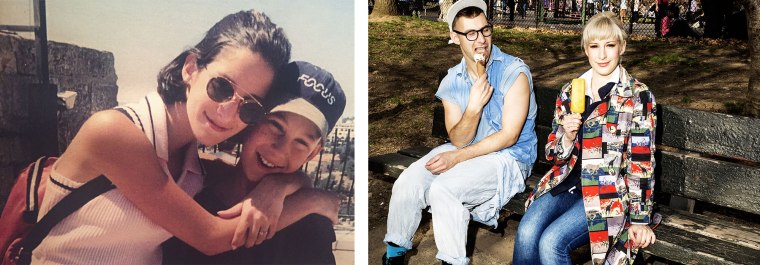
Posttraumatic growth is a tricky concept. For many kids and even adults, a loss of this magnitude may cause permanent devastation, not motivation. And yet while the Antonoffs experienced a loss significantly more shattering than most, many of the other eight families also experienced a brush with untimely death. The woman who was shot in the head in front of the Rodriguezes’ home was their cousin. The Simmons brothers saw friends and neighbors killed by drugs, AIDS and gang violence. Rahm Emanuel nearly died as a teenager when a deep cut in his finger developed into a bone infection. (He ended up losing half his finger.)
Such experiences can fuel ambition. After spending weeks in the hospital battling that life-threatening infection, Rahm says, he transformed from a slacker student into a go-getter. “I made sure that given how close I came to dying, that I was never, ever going to not get the most out of everything I was doing,” he says. “I was a changed person.”
It can also help a family get their priorities straight. Jack and Rachel’s mother Shira Antonoff said Sarah’s death drowned out all the petty judgments and expectations of their suburban New Jersey community. She let her kids skip school, she didn’t insist they finish college, and she took Jack to get his lip pierced at age 15, to the shock and dismay of other mothers in the grocery store.
“The core was, We’ve had a sick kid, we’ve had a kid who’s died, so let’s get real about what’s important here,” Shira says. “You’ve got to find a path in life that you’re really happy with.”

a free-range childhood
Like many of the other siblings in this story, Tan and Maya Lin grew up on a university campus, were raised by immigrant parents and bickered constantly over board games. They were also allowed to do practically anything they wanted. You could say it was the opposite of helicopter parenting.
Their father Henry Huan Lin had been forced to take calligraphy classes while growing up in China, an experience he loathed so much that it informed his parenting philosophy. “He promised that when he had kids, they would never have to do anything they didn’t want to do,” Maya says.
And so the Lin parents, who fled Mao and ultimately became professors at Ohio University, didn’t monitor their children’s homework or force them to join sports teams or push them to learn the piano. “We were given all sorts of freedom to do whatever we wanted,” recalls Tan, now a poet and the author of a dozen books. Maya, an artist and architect who designed the Vietnam Veterans Memorial, puts it this way: “They were the anti–dragon parents.”
The Lin Family
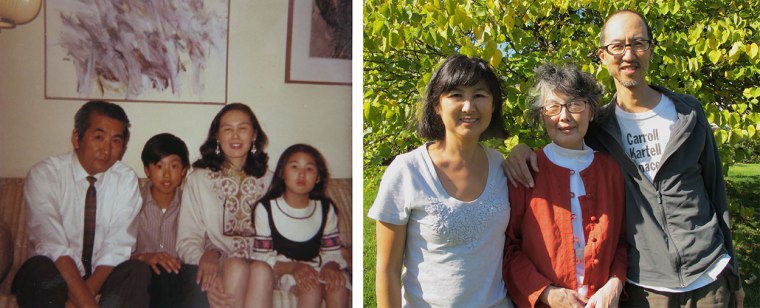
The Lin siblings spent most of their time outside, or writing poems, or throwing clay in the university ceramics studio. They went to a high school with an open-module system, which meant that sometimes they went to class only two days a week. “I’ve only ever chafed when there are rules,” Maya says.
Few of the siblings in this story had parents who closely monitored their movements, and many said they were raised with significantly more freedom than their friends. By the standards of today’s helicopter parents, they ran wild. The Dungey sisters rode all over Sacramento on their bikes alone. The Antonoffs were allowed to skip school whenever they wanted. Six-year-old Zeke Emanuel regularly escorted 4-year-old Rahm home from nursery school on a Chicago city bus.
“She was a supporter of us, but she didn’t tell us what to do, and she allowed us to play and develop our own ideas,” says Zeke of his mother. “She didn’t even worry too much whether they were safe or not.”
Esther Wojcicki taught her daughters to swim as soon as they could walk, specifically so that she wouldn’t have to watch them when they played near the backyard pool. “I empowered them early, because I wanted to make sure they could take care of themselves,” she says. “They could read early, so they could read signs. They could do math early, so they could handle money.”
Even by the comparatively lax standards of the 1970s, the Wojcicki girls had more freedom than most. Five-year-old Susan was often left to babysit 4-year-old Janet and infant Anne, and local mothers raised their eyebrows when the girls rode their bikes alone to the dime store a mile away.
But Esther has a theory. “The more you do for your kids, the less they do for themselves, and the less empowered they feel,” she says.
Thousands of extraordinary families flourish across America, and the new generation of hyperaware parents may raise thousands more. But none of the parents in this story set out to raise successful children. Instead, the six commonalities of our nine families combined to create drive, grit and social consciousness that propelled all the siblings on their own chosen paths.
“You cannot reach anybody’s goal. You’ve got to reach your own goal,” says Gino Rodriguez. “You cannot reach a goal unless you set that goal for yourself.” That’s why I can and I will are five words without an object, a push without direction. Look how far it took them.
Aug. 24, 2016